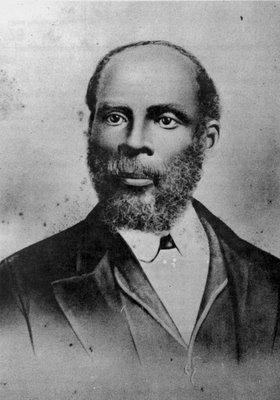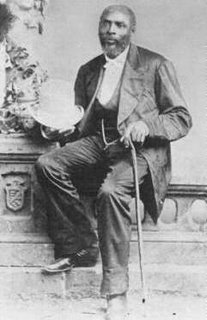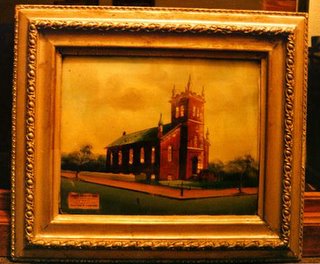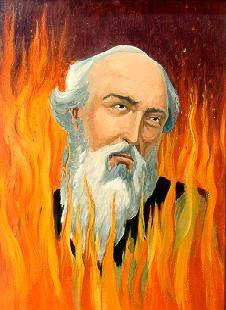 My Mom is one of the greatest women and Christian's you could ever be privileged to get to know. She is forthright, loving, generous, selfless, constantly studying the Word, a straight-shooter, a discipler of people, an available servant of the Lord, a great listener, upbeat, keeps her eye on eternity, always has the coffee brewing in case you're in the neighborhood :-), and the heart of the home. She is a living example of Proverbs 31. This July 3rd she will be 91 years old. Her mind is sharp; her heart is tender; and she is also the most treasured friend one could ever know. In fact, that is what the name Ruth means: trusted and faithful friend. She wears her name well!
My Mom is one of the greatest women and Christian's you could ever be privileged to get to know. She is forthright, loving, generous, selfless, constantly studying the Word, a straight-shooter, a discipler of people, an available servant of the Lord, a great listener, upbeat, keeps her eye on eternity, always has the coffee brewing in case you're in the neighborhood :-), and the heart of the home. She is a living example of Proverbs 31. This July 3rd she will be 91 years old. Her mind is sharp; her heart is tender; and she is also the most treasured friend one could ever know. In fact, that is what the name Ruth means: trusted and faithful friend. She wears her name well!
The very first set of commentaries I owned were given to me by my mother, Ruth Camp, shortly after my father went home to be with the Lord in June of 1972. She gave me "The Treasury of David" by C.H. Spurgeon and "An Exposition of Psalm 119" by Charles Bridges. We had the opportunity to go through many sections of Bridges great volume one year. I will never forget those foundational days. It proved to be a strong, biblical foundation for a young man venturing off in music ministry. Below is a selection from Bridges commentary on Psalm 119:136 that she and I studied.
On this Mother's Day, may our hearts be thankful for the faithful prayers and influence for the gospel that many of our Mom's have been to us. How I praise the Lord for a Mom that instilled early in my life a love for the truth, a love for the Savior, and a passion to proclaim the gospel of Jesus Christ to others.
I rise up and call you blessed...
Happy Mother's Day Mom!
Steve
2 Tim. 3:14-17
Compassion for the Lost
by Charles Bridges
“Rivers of waters run down mine eyes, because they keep not thy law.”
—Psalm 119:136
If the Lord teaches us the privileges of his statutes, he will teach us compassion for those who keep them not. This was the mind of Jesus. His life exhibited one, whose “heart was made of tenderness.” But there were some occasions, when the display of his compassion was peculiarly sinking. Near the close of his life, it is recorded, that, “when he was come near, and beheld the city” — “beautiful for situation, the joy of the whole earth” (Psa. 48:2)—but now given up to its own ways, and “wrath coming upon it to the uttermost,” he “wept over it” (Luke 19:41; Comp. Matt. 23:37, also Mark 3:5). It was then a moment of triumph. The air was rent with hosannahs. The road was strewed with branches from the trees, and all was joy and praise (Comp. Luke 19:36–40). Amid all this exultation, the Saviour alone seemed to have no voice for the triumph—no heart for joy. His omniscient mind embraced all the spiritual desolation of this sad case; and he could only weep in the midst of a solemn triumph. Rivers of waters run down mine eyes, because they keep not thy law.
Now a Christian, in this as in every other feature, will be conformed to the image of his Lord. His heart will therefore be touched with a tender concern for the honour of his God, and pitying concern for those wretched sinners, that keep not his law, and are perishing in their own transgressions. Thus was “just Lot” in Sodom “vexed with the filthy conversation of the wicked” (2 Pet. 2:7, 8). Thus did Moses “fall down before the Lord, as at the first, forty days and forty nights; he did neither eat bread nor drink water; because of all their sins which they had sinned, in doing wickedly in the sight of the Lord to provoke him to anger” (Deut. 9:18, 19). Thus also Samuel, in the anticipation of the Lord’s judgments upon Saul, “grieved himself and cried unto the Lord all night” (1 Sam. 15:11, 35). Ezra, on a similar occasion, in the deepest prostration of sorrow, “rent his garment and his mantle, and plucked off the hair of his head and of his beard, and sat down astonished until the evening sacrifice” (Ezra 9:3, 4). And if David was now suffering from the oppression of man (verse 134), yet his own injuries never drew from him such expressions of overwhelming sorrow as did the sight of the despised law of his God.
Need we advert to this tender spirit, as a special characteristic of “the ministers of the Lord”? Can they fail in this day of abounding wickedness—even within the bounds of their own sphere—to hear the call to “weep between the porch and the altar” (Joel 2:17)? How instructive is the posture of the ancient prophet—first pleading openly with the rebellion of the people—then “his soul weeping in secret places for their pride” (Jer. 13:17)! Not less instructive is the great apostle—his “conscience bearing witness in the Holy Ghost to his great heaviness and continued sorrow in his heart for his brethren, his kinsmen according to the flesh” (Rom. 9:1–3). In reproving transgressors, he could only write to them, “Out of much affliction and anguish of heart with many tears” (2 Cor. 2:4), and in speaking of them to others, with the same tenderness of spirit, he adds: “Of whom I tell you even weeping” (Phil. 3:18; Comp. Acts 20:19). Tears were these of Christian eloquence no less than of Christian compassion.
Thus uniformly is the character of God’s people represented—not merely as those that are free from, but as “those that sigh and that cry for all the abominations that be done in the midst of the land.” They—they alone—are marked out for mercy in the midst of impending, universal ruin (Ezek. 9:4). The want of this spirit is ever a feature of hardness and pride—a painful blot upon the profession of the gospel (1 Cor. 5:2). How wide the sphere presenting itself on every side for the unrestrained exercise of this yearning compassion! The appalling spectacle of a world apostatized from God, of multitudes sporting with everlasting destruction—as if the God of heaven were “a man that he should lie” (Num. 23:19), is surely enough to force rivers of waters from the hearts of those who are concerned for his honour. What a mass of sin ascends as a cloud before the Lord, from a single heart! Add the aggregate of a village— a town—a country—a world! Every day— every hour—every moment—well might the rivers of waters rise to an overflowing tide, ready to burst its barriers. We speak not of outward sensibility (in which some may be constitutionally deficient, and the exuberance of which may be no sign of real spiritual affection), but we ask—Do we lay to heart the perishing condition of our fellow-sinners? Could we witness a house on fire, without speedy and practical evidence of our compassion for the inhabitants? And yet, alas, how often do we witness souls on the brink of destruction—unconscious of danger, or bidding defiance to it—with comparative indifference! How are we Christians, if we believe not the Scripture warnings of their danger; or if, believing them, we do not bestir ourselves to their help? What hypocrisy is it to pray for their conversion, while we are making no effort to promote it! Oh! let it be our daily supplication, that this indifference concerning their everlasting state may give place to a spirit of weeping tenderness; that he may not be living as if this world were really, what it appears to be, a world without souls; that we may never see the sabbaths of God profaned, his laws trampled under foot, the ungodly “breaking their bands asunder, and casting away their cords from them” (Psa. 2:3), without a more determined resolution ourselves to keep these laws of our God, and to plead for their honour with these obstinate transgressors. Have we no near and dear relatives, yet lying in wickedness—dead in trespasses and sins? To what blessed family, reader, do you belong, where there are no such objects of pity? Be it so—it is well. Yet are you silent? Have you no ungodly, ignorant neighbours around you? And are they unwarned, as well as unconverted? Do we visit them in the way of courtesy or kindness, yet give them no word of affectionate entreaty on the concerns of eternity? Let our families indeed possess, as they ought to possess, the first claim to our compassionate regard. Then let our parishes, our neighbourhood, our country, the world, find a place in our affectionate, prayerful, and earnest consideration.
Nor let it be supposed, that the doctrine of sovereign and effectual grace has any tendency to paralyze exertion. So far from it, the most powerful supports to perseverance are derived from this source. Left to himself—with only the invitations of the Gospel—not a sinner could ever have been saved. Added to these—there must be the Almighty energy of God—the seal of his secret purpose—working upon the sinner’s will, and winning the heart to God. Not that this sovereign work prevents any from being saved. But it prevents the salvation from being in vain to all, by securing its application to some. The invitations manifest the pardoning love of God; but they change not the rebel heart of man. They show his enmity; yet they slay it not. They leave him without excuse; yet at the same time —they may be applied without salvation. The moment of life in the history of the saved sinner is, when he is “made willing in the day of the Lord’s power” (Psa. 110:3)—when he comes—he looks—he lives. It is this dispensation alone that gives the Christian labourer the spring of energy and hope. The palpable and awful proofs on every side, of the “enmity of the carnal mind against God,” rejecting alike both his law and his Gospel, threaten to sink him in despondency. And nothing sustains his tender and compassionate interest, but the assurance of the power of God to remove the resisting medium, and of his purpose to accomplish the subjugation of natural corruption in a countless multitude of his redeemed people.
The same yearning sympathy forms the life, the pulse, and the strength of missionary exertion, and has ever distinguished those honoured servants of God who have devoted their time, their health, their talent, their all, to the blessed work of “ saving souls from death, and covering a multitude of sins.” (James 5:20.) Can we conceive a missionary living in the spirit of his work— surrounded with thousands of mad idolaters, hearing their shouts, and witnessing their abominations, without a weeping spirit? Indignant grief for the dishonour done to God—amazement at the affecting spectacle of human blindness—detestation of human impiety—compassionate yearnings over human wretchedness and ruin—all combine to force tears of the deepest sorrow from a heart enlightened and constrained by the influence of a Saviour’s love.
My God! I feel the mournful scene;
My bowels yearn o’er dying men;
And fain my pity would reclaim,
And snatch the fire-brands from the flame,
This, as we have seen, was our Master’s spirit. And let none presume themselves to be Christians, if they are destitute of “this mind that was in Christ Jesus” (See Philippians 2:4–8); if they know nothing of his melting compassion for a lost world, or of his burning zeal for his heavenly Father’s glory.
Oh, for that deep realizing sense of the preciousness of immortal souls, that would make us look at every sinner we meet as a soul to be “pulled out of the fire,” and to be drawn to Christ—which would render us willing to endure suffering, reproach, and the loss of all, so that we might win one soul to God, and raise one monument to his everlasting praise! Happy mourner in Zion, whose tears over the guilt and wretchedness of a perishing world are the outward indications of thy secret pleadings with God, and the effusion of a heart solemnly dedicated to the salvation of thy fellow-sinners!
But feeble my compassion proves,
And can but weep, where most it loves;
Thine own all-saving arm employ,
And turn these drops of grief to joy.
(The above article is excerpted from Psalm 119:
An Exposition, originally published in 1827.
Reprinted in 1977 by Banner of Truth Trust, Edinburgh.)
this has been an encore presentation
 February is traditionally known as black history month. While some in our society unfortunately use it to play what has commonly become known as "the race card", as believers in the Lord Jesus Christ, we can 'redeem' it by honoring one of the Lord's servants.
February is traditionally known as black history month. While some in our society unfortunately use it to play what has commonly become known as "the race card", as believers in the Lord Jesus Christ, we can 'redeem' it by honoring one of the Lord's servants. One of the great Slave preachers, Jasper became a noted funeral preacher long before the Civil War. Noted for his fervid zeal, gifted imagery, and colorful oratory, as a speaker Jasper was much in demand. He preached in many sections of Virginia and adjoining states. During his August vacation, he conducted famous all-day camp meetings in the country. Sunday after Sunday he could be seen leading his flock to be baptized in the James River. He was known to have baptized as many as 300 people in four hours. He reached the height of his aspiration in 1867 when he organized the Sixth Mount Zion Baptist Church. He gained national distinction in 1878 when he first preached his famed "DE SUN DO MOVE" sermon, which he later delivered by invitation more than 250 times, and once before the entire Virginia General Assembly. This sermon was his effort to prove through biblical references that the sun revolves around the earth. Black men were not allowed to preach in regular churches in those days unless supervised by white ministers. But Jasper's pointed and powerful messages soon drew a growing crowd, black and white, to hear him preach.
One of the great Slave preachers, Jasper became a noted funeral preacher long before the Civil War. Noted for his fervid zeal, gifted imagery, and colorful oratory, as a speaker Jasper was much in demand. He preached in many sections of Virginia and adjoining states. During his August vacation, he conducted famous all-day camp meetings in the country. Sunday after Sunday he could be seen leading his flock to be baptized in the James River. He was known to have baptized as many as 300 people in four hours. He reached the height of his aspiration in 1867 when he organized the Sixth Mount Zion Baptist Church. He gained national distinction in 1878 when he first preached his famed "DE SUN DO MOVE" sermon, which he later delivered by invitation more than 250 times, and once before the entire Virginia General Assembly. This sermon was his effort to prove through biblical references that the sun revolves around the earth. Black men were not allowed to preach in regular churches in those days unless supervised by white ministers. But Jasper's pointed and powerful messages soon drew a growing crowd, black and white, to hear him preach. In March of 1901, John Jasper preached to his congregation for the last time on the subject, "Ye Must Be Born Again." He urged his people to prepare for death, which he knew was coming soon for him. At his funeral, Dr. Hatcher said, "Every motion of his was made to exalt the Lord of his life." At his funeral, Reverend Hatcher delivered the eulogy, calling him "a prince of his tribe." Jasper is buried at Woodland Cemetery in Richmond, which also is the final resting place of tennis great Arthur Ashe.
In March of 1901, John Jasper preached to his congregation for the last time on the subject, "Ye Must Be Born Again." He urged his people to prepare for death, which he knew was coming soon for him. At his funeral, Dr. Hatcher said, "Every motion of his was made to exalt the Lord of his life." At his funeral, Reverend Hatcher delivered the eulogy, calling him "a prince of his tribe." Jasper is buried at Woodland Cemetery in Richmond, which also is the final resting place of tennis great Arthur Ashe.






















